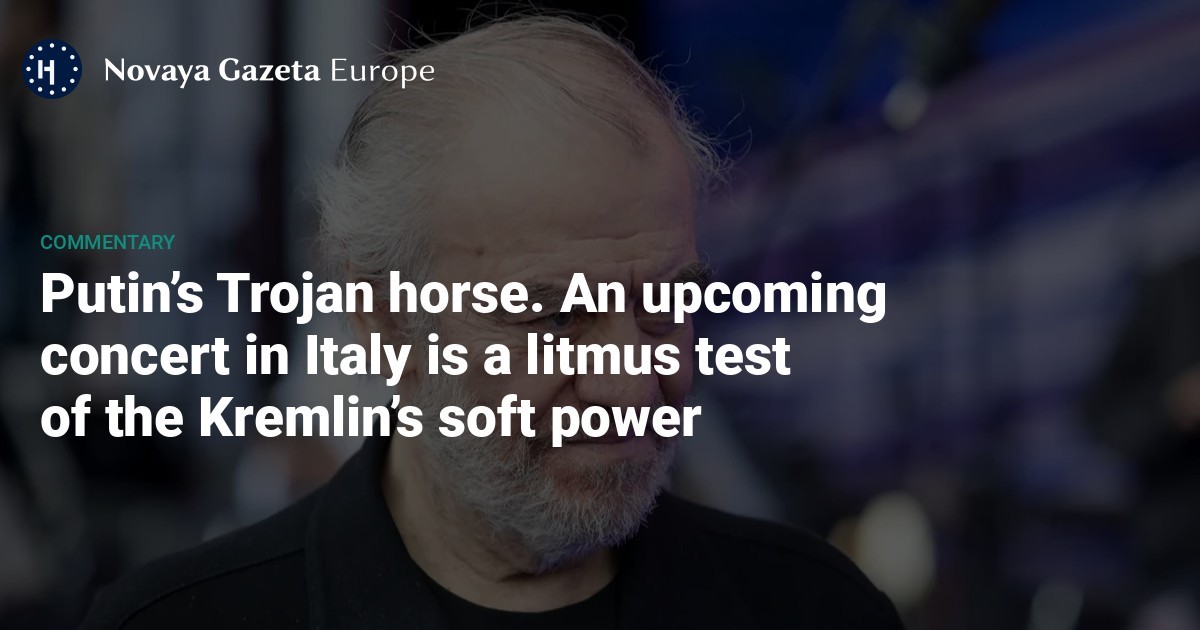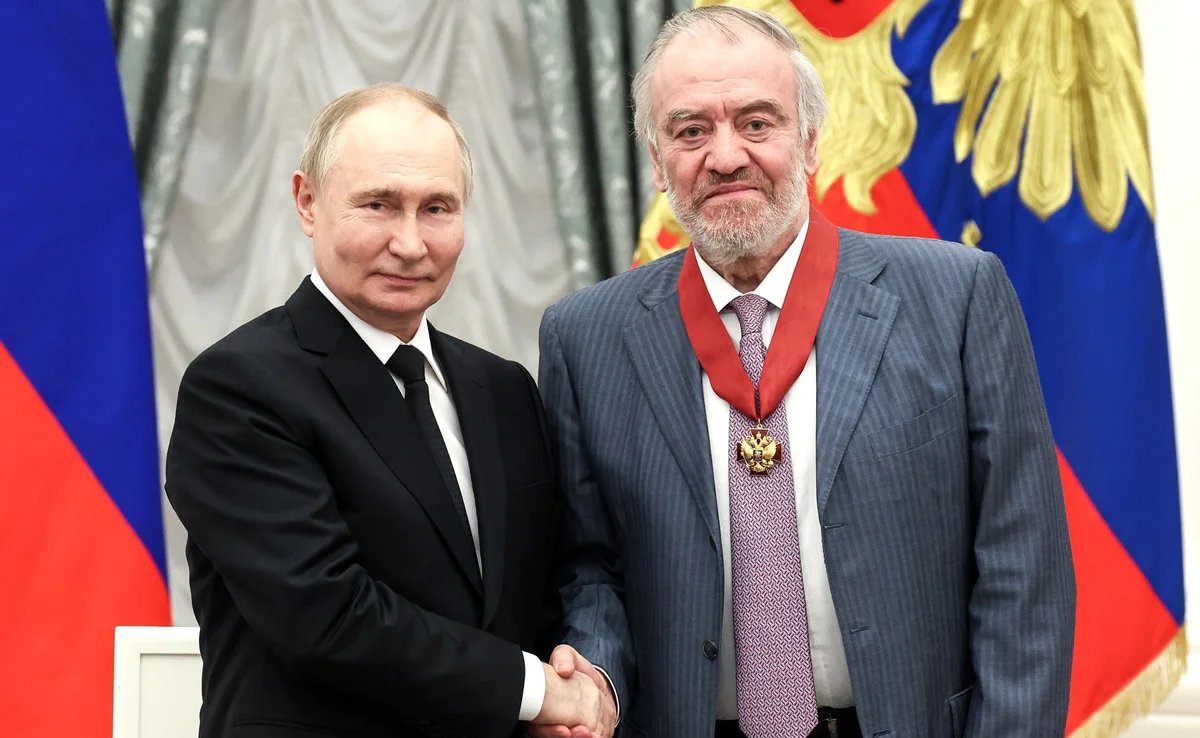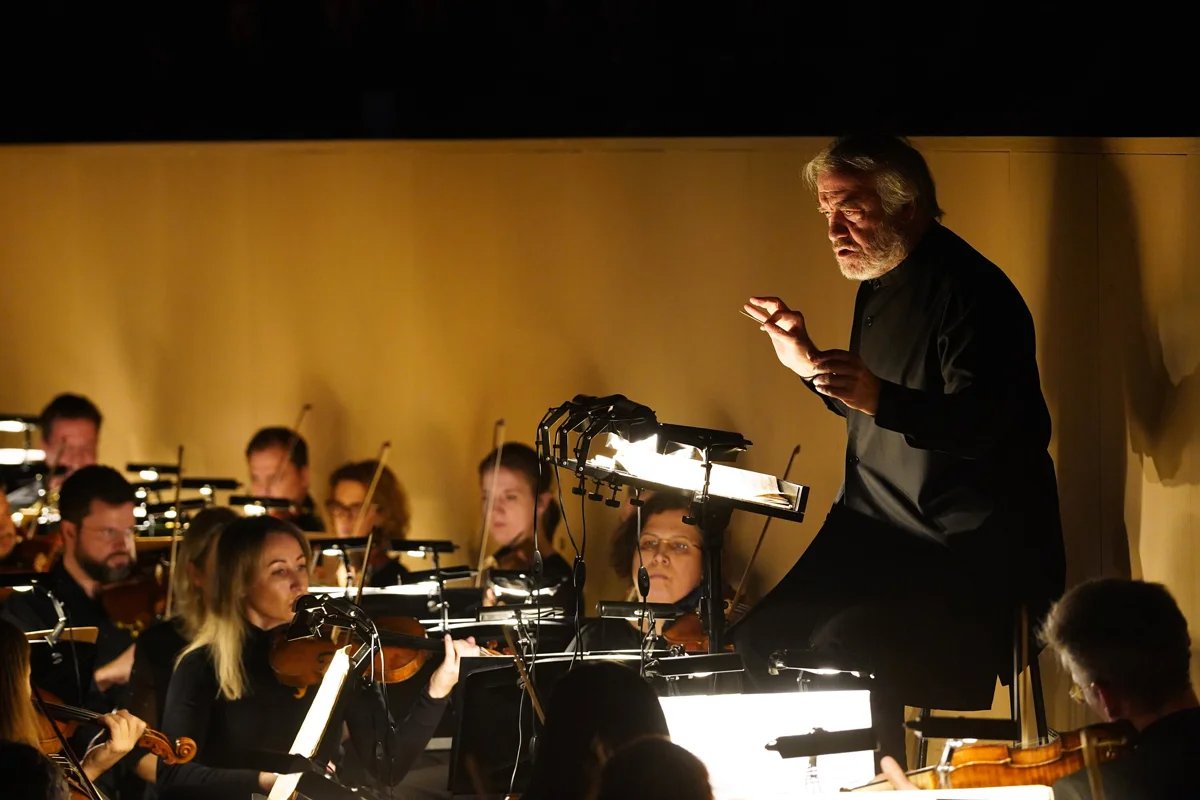



Valery Gergiev, the head of the Bolshoi and Mariinsky theatres and a friend of Vladimir Putin, is set to return to Europe in his first concert since the full-scale invasion began. Gergiev will conduct the Salerno Philharmonic Orchestra, featuring soloists from the Mariinsky, at the Un’Estate da RE festival at the Royal Palace of Caserta in Italy on 27 July. The programme will feature works by Verdi and Tchaikovsky, with tickets going for between €10 and €15.
Activists are up in arms. Alexey Navalny’s Anti-Corruption Foundation (FBK) and the Vice President of the European Parliament, Pina Picierno, have called for the concert to be cancelled. But festival organisers and regional politicians say that “Culture and art are places for dialogue between people and an opportunity to develop solidarity.” The festival has also drawn ire for inviting an Israeli conductor.
European and American cultural institutions have been at the centre of contentious debates about allegiances, ownership, identity, and belonging brought up by Russia’s war in Ukraine. Many longstanding professional relationships with Russian artists and institutions have been severed.
In the first weeks and months of the invasion of Ukraine, Western institutions largely agreed about the need to distance themselves from Russian institutions. But as the war drags on, attitudes are changing.
For years Western institutions worked with Gergiev in spite of performances that nakedly supported Putin’s most controversial decisions.
In January, when Novaya Europe wrote about the implications of the critical and commercial success of the film Anora, it was clear that Russian culture was not truly “cancelled”.
Gergiev has long worked in the West, conducting orchestras in Munich, London and Rotterdam. He was the principal guest conductor at New York’s Metropolitan Opera. His presence could pack concert venues worldwide.
For years Western institutions worked with him in spite of performances that nakedly supported Putin’s most controversial decisions: Gergiev performed in Tskhinvali, the capital of Georgia’s breakaway region of South Ossetia in 2008, and in Palmyra, Syria, in 2016. Gergiev endorsed Putin in his 2012 and 2018 presidential election campaigns, and after Putin annexed Crimea. In 2013, Gergiev was accused of failing to speak out against Putin’s early anti-LGBT laws, with protesters declaring: “Your silence kills Russian gays.”

Vladimir Putin hands Gergiev an award for services to the fatherland, 30 May 2024. Photo: Valery Sharifulin / TASS / Kremlin
But back then, neither Gergiev nor any other Russian performer had difficulty performing in either Europe or the United States.
After the war, cultural institutions in the West started demanding that Gergiev speak out against it. Gergiev refused, and in March 2022, he was personally invited by Putin to run the Bolshoi Theatre. Bringing the Bolshoi and Mariinsky under unified management had long been a dream of Gergiev’s and being ostracised by the West paradoxically provided the perfect opportunity to make that dream come true. Gergiev’s silence on the war was a test of his loyalty — and he passed.
Gergiev made other public displays of support for the war: he dramatically left a premiere at the Bolshoi to conduct a single song and hand a cheque for one million rubles (€11,000) to the family of one of Russia’s dead soldiers at another venue, and then returned to the Bolshoi an hour later to carry on conducting. The net profit of his eponymous charity foundation increased fourfold during the first year of the war, and the foundation regularly receives state contracts worth hundreds of millions of rubles.
Since US President Donald Trump’s return to office, the Kremlin has seen new possibilities to exert its soft power.
Even after Western institutions cut their ties with him, Gergiev continued to tour in China, Oman and Bahrain. His businesses are flourishing. In April 2022, the FBK published a detailed investigation that unearthed evidence of Gergiev’s close ties to a Japanese-Italian countess and a company in Italy with luxurious properties registered to it; the investigation also found that Gergiev had a personal Italian tax code, which identified him as a citizen of the Netherlands. Yet, despite all this, only Canada ever imposed sanctions on Gergiev — last month.
Since US President Donald Trump’s return to office, the Kremlin has seen new possibilities to exert its soft power. After years of the West isolating Russia, Trump’s administration has ushered Putin back to the world stage: organising a summit with Russia in Riyadh and speaking regularly with Putin on the phone — no fewer than six times this year. In the spring, when there was hope that a ceasefire might be achievable, many European cultural institutions looked forward to working with their Russian colleagues again.

Valery Gergiev opens a festival in Moscow, 15 November 2024. Photo: Alexander Avilov / AGN Moskva
In March, news broke that Gergiev may perform in Spain. Then the Greek-Russian conductor and musician Teodor Currentzis was added to the Barcelona classical musical season. Like Gergiev, Currentzis has kept quiet about the war; his musical empire, MusicAeterna, has received financial support from government-related donors. Last year, the sanctioned state-controlled VTB bank announced that it would finance the construction of a new concert venue for Currentzis, costing 80 billion rubles (€880 million). Still, he was invited to conduct at the Paris Opera.
Last summer, Novaya Europe interviewed the heads of major German theatres. Many continued to work with Russians, regardless of whether they had publicly spoken out against the war or not. Peter Theiler, the director of the Dresden opera, said: “[The letter in support of the annexation of Crimea in 2014] was about survival, not politics, for many artists who signed. People need to understand that. … I cannot ask [a conductor who signed it] and other musicians what their political views are. That goes against the principles of democracy and freedom of choice. Of course we won’t work with the likes of Gergiev. He’s not just a musician. He’s an active propagandist.”
If Gergiev ends up performing at the concert in Italy, the Kremlin will see it as a major win for its soft power in the West.
Gergiev’s performance at an admittedly second-rate music festival may be an indication that some within the European cultural establishment just want it to be 2021 again. Back then, the Russian dictatorship wasn’t at the forefront of everyone’s minds, and they could more easily compartmentalise culture entirely separate from Putin’s bloody conflicts.
An attempt to reestablish this division can be felt in the popular refrain: “Keep politics out of culture.”
If Gergiev ends up performing at the concert in Italy, the Kremlin will see it as a major win for its soft power in the West. It’s likely that other countries will follow Italy’s example. The return to a time when Russian culture could be accepted uncritically is a step toward normaliыing diplomatic and economic ties with the Kremlin too.
The Russian government has banned independent media. We were forced to leave our country in order to keep doing our job, telling our readers about what is going on Russia, Ukraine and Europe.
We will continue fighting against warfare and dictatorship. We believe that freedom of speech is the most efficient antidote against tyranny. Support us financially to help us fight for peace and freedom.
By clicking the Support button, you agree to the processing of your personal data.
To cancel a regular donation, please write to [email protected]
VPNovaya
Help Russians and Belarusians Access the Truth
